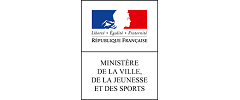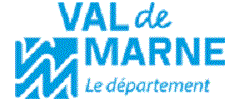The Sixth Session of the Intergovernmental Forum on Chemical Safety IFCS was held 15-19 September 2008 in Dakar, Senegal.
WECF participated in the meeting, together with representatives of 71 governments, 12 intergovernmental organizations (IGO) and 39 NGOs.
02.10.2008 |Sonja Haider
WECF Report: The Sixth Session of the Intergovernmental Forum on Chemical Safety IFCS was held 15-19 September 2008 in Dakar, Senegal. WECF participated in the meeting, together with representatives of 71 governments, 12 intergovernmental organizations (IGO) and 39 NGOs.
The IFCS is known for providing an open, transparent and inclusive forum for discussing issues of common interest and also new and emerging issues in the area of sound management of chemicals. The general awareness of the difficult and controversial aspects of chemicals management and that all stakeholders have responsibility to take action to create a better future led to the establishment of the IFCS to find workable solutions.
Nevertheless the future of the IFCS was under heavy pressure, as funders and important governments (US, Norway) have left the scene. The agenda of IFCS started therefore with discussions on the future, followed by the issues nanotechnology, substitution, lead in paint, transport of lead and cadmium, and pesticides risk reduction strategies.
1.Future of IFCS
Although most of the donor countries have already switched their contribution to support the SAICM process (Strategic Approach to an International Chemical Management) and its conference ICCM (International Conference on Chemical Management) instead, many developing countries and NGOs called for continuing IFCS as they fear to loose their possibility to influence. To avoid a PATT-situation the Forum decided after long discussions to integrate the forum into ICCM. The aim is to ensure the core functions and structures and keep the open multistakeholder dialogue alive. Nevertheless the decision is now in hands of ICCM2 and more so in the hands of future donors. Here you find the Dakar Resolution on the Future of the Intergovernmental Forum on Chemical Safety (IFCS): www.who.int/entity/ifcs/saicm/conference_chemicals/dakar_res_en.pdf
2.Nanotechnology:
A whole day was dedicated to exchange information on opportunities and challenges of nanotechnology and manufactured nanoparticles.
First, Germ Visser of Royal DSM Innovation Center explained nanotechnology. The presenter stressed the difference between nanotechnology and nanoparticles, and stated that the Forum should only discuss the manufactured nanoparticles. One of the problems, however, is that there is no strict definition of nano, therefore for example labeling is a problem.Nanotechnology, the presenter stated, is mostly a matter of control. The market value will be 3 trillion dollars by 2015 and not surprisingly, DSM sees nanotechnology as the solution for the biggest problems in the world;energy (solar, insulation),water (purification)and food (packaging, hygiene, lower amounts of pesticides).
Then, another sound from the Doctors for the Environmentwas heard (Vyvyan Howard, University of Ulster). Although there are many benefits like water purification, free nanoparticles pose a hazard and there has to be a balance of risks and benefits.Nanoparticles enter the body and then travel around, e.g in the nervous system.
The body doesn’t always recognize the small nanosize. The presenter spoke of mechanisms of nanoparticle cytotoxity like catalysis and membrane penetration. There is a threat for protein misfolding diseases, mostly in the central neuro system. What if nanoparticles gain access in this system? We know a lot about dust diseases and some nanoparticles show a lot of equality with asbestos. Still, it’s difficult to predict the consequences, for example: can nanoparticles undergo long range transport?
Then Peter Gehr, University of Bern explained the possible interaction of nanomaterials with organisms. He stated that only nano has the potential to enter the blood in the lung. He also stated that a lot is unsecure, but nanoparticles may penetrate tissue and cells, may enter the lungs, may be transported to other organs, may cause oxidative stress in cells and may cause inflammatory reactions in cells. However, al lot of more research has to be done.
Pieter van Broekhuizen was speaking on behalf of the Dutch Bureau for Occupational Health, Amsterdam. He runs a project on nano for environmental ngo’s and capacity building. He stated that the people working with nanoparticles deserve a responsible, precautionary approach. They are concerned about the lack of data and insufficient knowledge. So, how to organize a safe workplace? The problems are among others the confidentiality of producers and the unknown exposure measures. Also, it is for the Labor Inspection not possible to inspect the work floor if nothing is known. He presented a possible risk assessment called ‘organizing a precautionary approach’. He stated the Unions point of view: no data: no exposure; no data, no market. Compliance with legislation is needed, for example full compliance with REACH.
The next speaker explained that the annual budget for nanotechnology of the USA is rising exponentially and that there is a lot of money available for nanotechnology. However, it is used for commercial and military applications, but not for research on potential impacts on society. The money is allocated to soldiers and surveillance. Of course also for solar and water, but the budgets are low for that. The small size of nano has impacts for health and environment and companies rarely perform risk assessments. The speaker regretted that innovation always has to be high tech, but people tend to forget there is also a lot of lowtech innovation to be done. Further, innovation should not only be global, but also regional and technology cannot replace injustice. Speaker was wondering; if nanotechnology is the answer, what has been the question?
The meeting continued with an ethical discussion. Central question was; what’s happening to the countries that cannot keep up with the race in technology? Won’t it enlarge the gap between developed and developing countries? Would the unequal distribution of and access to nano be unfair or unjust? According to the speaker it depends. Distributive justice does not necessary mean equality. However, every human being has the claim for basic needs. In this case justice requires strict equality. That implies a duty to guarantee. For example, nanobased water purification systems are a basic need, so ethically they must be provided. Suncremes however that are based on nano are no basic need, so there is no duty to provide them to people who can’t afford them. The possible effects on development countries of manufactured nanoparticles are that they are not able to compete. This requires a flexibilisation of patent systems, according to the Doha declaration. Developing countries that have taken the decision to invest in nano should focus on basic needs.
The day ended with a good discussion. The most important conclusions were that developing countries lack the knowledge and abilities to handle manufactured nanoparticles with enough precaution. Also, the lack of funding for good research is a problem.
During the week, several evenings were contruibuted for a common statement on manufactured nanoparticles. This lead to the Dakar Statement on Manufactured Nanomaterials, underscribed by Women in Europe for a Common Future:
WECF´s position paper on Nanotechnology was very well distributed and accepted. See: http://www.wecf.eu/english/publications/2008/nano-positionpaper.php
3.Substitution (Summary of Earth Negotiations Bulletin)
Good substitution strategies proposed by Ken Geiser, University of Massachusetts Lowell namely: improved methods and procedures; better scientific information; creation of a substitute database; integration of substitution processes into comprehensive chemicals management; involvement of all stakeholders; and capacity building.
Challanges: Lothar Lißner, Cooperation Centre Hamburg stated, that most companies in Europe are not following the rule. Uncertainty is as one of the main barriers to substitution due to often incomplete information on substitutes. In developing countries Richard Kiaka, iLima defined following challenges: implementing substitution strategies, highlighting: weaker capacity in research and development; limited public awareness and financial capacity; and economic investment that favors established industries. Dolores Romano, Instituto Sindical de Trabajo, Ambiente y Salud (ISTAS), said companies and workers are often unaware of the chemical ingredients in the products they use.
Substitution strategies:
1. Chemical leasing: Jorge Perez, National Cleaner Production Center of Mexico, explained how the chemical leasing business model can increase substitution. He emphasized that it aligns producer and user interests by compelling them to share responsibility for use of chemicals to improve both profits and environmental sustainability. Michael Streek, Schülke & Mayr GmbH, a manufacturer of disinfectants stressed the importance of application and customer support. He outlined a two-year project where his company is taking responsibility for hygiene conditions in a German hospital.
2. non-chemical substitution: Jorge Méndez-Galvan, Mexico, discussed phasing out DDT through his country’s malaria control programme. He recommended eliminating conditions and sites that breed mosquitoes through, inter alia, improving hygiene, sweeping patios, cutting vegetation and using bednets. He stressed community participation, ecological management and improving living standards in fighting malaria without insecticides.
Joel Tickner, Lowell Center for Sustainable Production, discussed challenges of substitution and tools needed to support implementation and innovation, including identifying substances of greatest concern and utilizing alternatives. He emphasized the need for a comprehensive information framework to make decisions that improve safety.
4.International transport of cadmium and lead
Report of IPEN:
Another topic at Forum VI concerned lead and cadmium. Specifically, the session focused on whether the international transport of lead and cadmium via trade is an international concern and thus warrants coordinated international action. This topic has been all over the news this year and represents an obvious component of children's chemical safety. The overwhelming consensus at the Forum was YES. Only China stood alone among countries in rejecting the idea of international action. In fact, in the working group, China rejected all the action points. The lead and cadmium industries supported China.
Since China and the industries blocked action, a declaration or statement could not emerge from the meeting. In its place, the Chair of the Working Group produced a summary that is pasted in below. The lack of action caused a lot of discontent at the meeting. During the final plenary session, Nigeria took floor to read a statement on behalf of Austria, Nigeria, Senegal, Sweden, Switzerland and Zambia. This statement is also pasted in below. Nigeria's intervention triggered a storm of interventions supporting action on lead and cadmium. This issue was recommended as an emerging issue to be taken up at ICCM2.
Official report in English: http://www.who.int/ifcs/documents/forums/forum6/report/en/index.html
Also a summary in Russian is available by download at this website
Pictures see:
http://www.iisd.ca/chemical/ifcs6/pix/2womenineuropeforacommonfuture_2769.jpg
Related News
Human Biomonitoring for Europe
Vienna, 26 September: stakeholder forum
28.09.2018
WECF sends letter to Dutch Secretary of State concerning EU policy on EDCs
In a joint statement WECF and the EDC Free Coalition ask Dutch State Secretary Dijksma to insist on major changes at the Environmental Council meeting to protect our health and environment.
21.06.2016
Commission's EDC criteria proposal: More humans will have to be harmed before action is taken
The European Commission presented today its proposal for criteria to identify endocrine disrupting chemicals (EDCs). WECF and the EDCfree Coalition condemn strongly the decision.
15.06.2016
WECF film "How to protect children from EDCs" now available in Spanish
Pregnant women know it is important to avoid alcohol, nicotine and certain foods. However, what is less well known is that many everyday products contain pollutants that can also be harmful to your baby. WECF's film gives practical advice on how to avoid exposure to EDCs. It now also available in Spanish.
13.06.2016




































